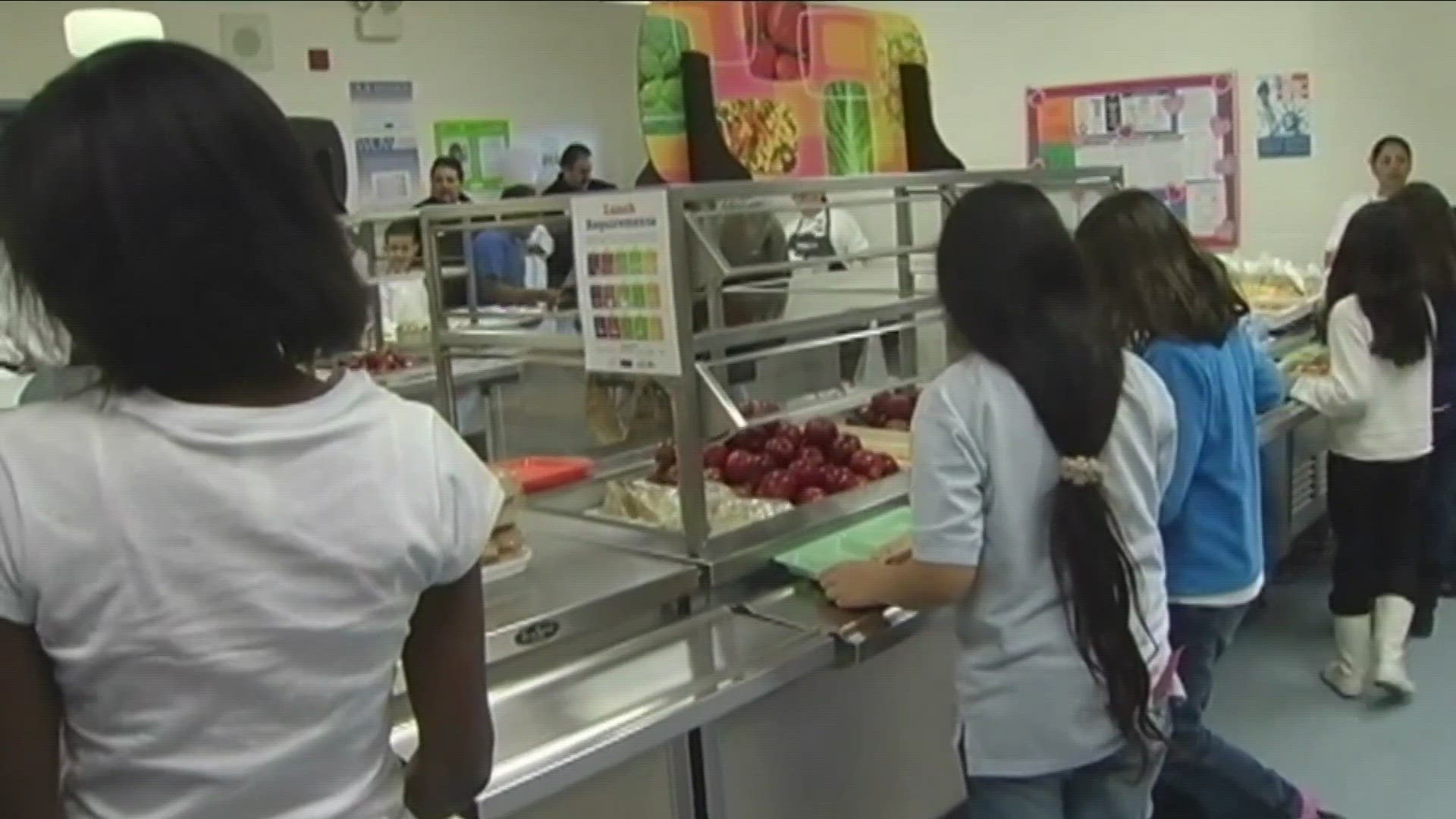BUFFALO, N.Y. — Albany lawmakers, along with Gov. Kathy Hochul, have just over a week to pass a new state budget.
Advocates across New York are pushing for the governor to include free school meals in her spending plan.
Dozens of people came together Friday at Springville Elementary School to call on the governor to do that. They want healthy school meals for all to be fully funded in this year's budget.
It's something the Springville-Griffith School District is already doing on its own.
Leaders passed a resolution back in January to provide free breakfast and lunch to all students, but they know it may not last forever.
"An already stretched budget providing meals at no cost may not be sustainable," James Bialasik, superintendent of the Springville-Griffith School District, said. "Not to mention there are hundreds of schools just like ours, and tens of thousands of students in those schools, and we want every school to experience these benefits."
More than 700,000 students lost access to free meals when federal waivers expired last June. That includes 78,000 students here in Western New York.
Statewide, 1 in 7 children encounter food insecurity on a daily basis.
"The food insecurity rate here in western New York is actually even worse than the state average," according to Collin Bishop, chief communications officer at FeedMore WNY. "Roughly one in five children in western New York is considered food insecure."
Senator Sean Ryan (D) says the Senate and Assembly are lockstep in getting universal no-cost meals added to the state budget.
"The governor failed to include the universal program in the original budget," Senator Ryan said. "Two out of the three parties agree that we need to fund this through the budget."
New York State receives approximately $1 billion annually from the federal government for the existing universal no-cost meal program, but there are hundreds of schools that don't meet the requirements for the program.
It's estimated that it would additionally cost between $187.3 million and $201 million to ensure all students were provided free meals.
Mark Laurrie has been the superintendent in Niagara Falls at times when the district did and didn't qualify for the federal program.
He says graduation rates have gone up since the district became eligible.
"Our graduation rate has moved to almost 85% in Niagara Falls from 67% six or seven years ago, when we weren't a Community Eligibility district," Laurrie said.

